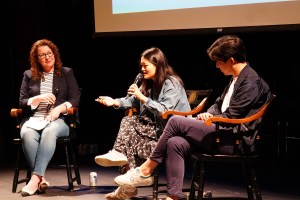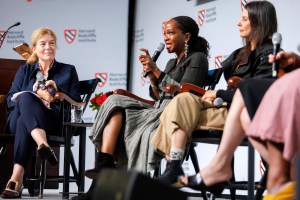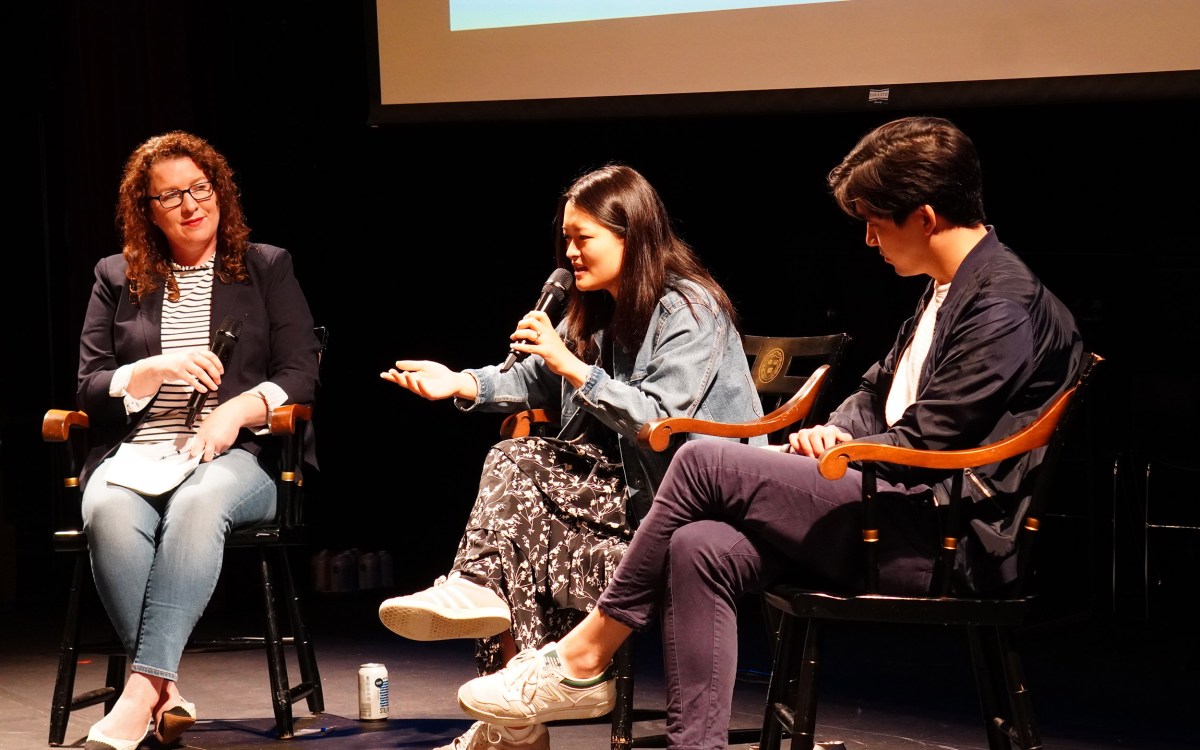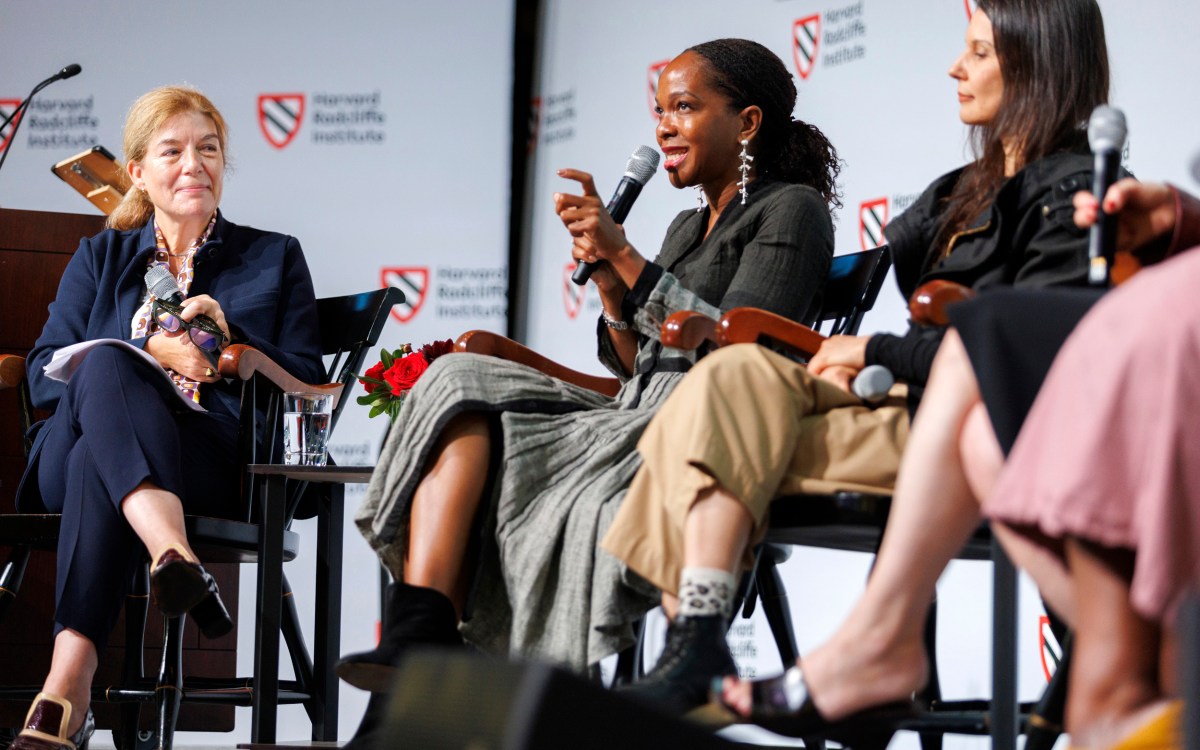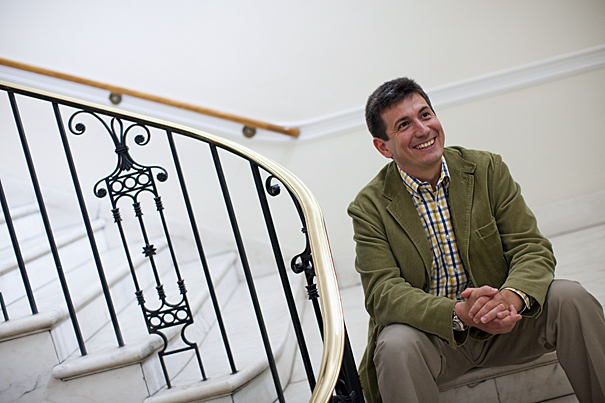
“The rise of China today is a tectonic shift in world history,” says Michael Szonyi, “and I don’t think we understand it adequately. I also think it’s really important that scholars in the field seize the opportunity to try to document what remains of traditional culture before it disappears or is transformed beyond recognition.”
Stephanie Mitchell/Harvard Staff Photographer
A first trip, a career opening
When Michael Szonyi went to China at 17, his path was set
“It was mostly happy coincidences,” Michael Szonyi said when asked how he got to where he has in his career. Szonyi, a Harvard professor of Chinese history, might just as easily have wound up teaching about India or Kenya.
Having skipped some grammar school and then graduating from high school early, the Canadian Szonyi found himself with what is now known as a “gap year” before college. “When I decided I wasn’t going to go to university right away,” he recalled, “my parents said, ‘Fine, but you’ve got to do something.’ I wrote an extraordinary number of letters — maybe 300 — to every NGO I could think of. I said, ‘Look, I’m a 17-year-old with absolutely no skills. Why don’t I come work for you for awhile?’”
Perhaps not surprisingly, he got something like 297 rejections. “They made it very clear that they already had too many uneducated 17-year-olds with no skills,” he said. “But I got three yeses — one from Kenya, one from southern India, and one from China. If I’d gone to Kenya first, my life would have been very different today.”
The Tao obviously knew what it was doing the day it sent Szonyi to Wuhan rather than Pondicherry. “Students now have their direction clearly charted out,” he said. “But I was just following my interests in travel and foreign cultures.”
Szonyi, whose father is a Hungarian immigrant and management consultant and whose mother is a retired schoolteacher, had been to China before, on a family vacation. “The idea of being multilingual and traveling was very normal in my family,” he said. Though his parents were “not enthusiastic” about sending him off alone for a year, they thought that China seemed like a relatively safe option in comparison to the alternatives. “In the mid-’80s,” Szonyi said, “there was a sense that China was opening and changing.”
Szonyi did eventually make it to India for a few months, but spent the bulk of his year teaching English and hitchhiking around southern and western China. When he returned, he started studying Mandarin and enrolled in the international relations program at the University of Toronto. “By the end of three years, I had little interest in international relations and a huge interest in Chinese,” he said. “All of my friends from college remember me walking around with flashcards, because in those days that’s how you learned to read Chinese.”
He ended up getting a three-year degree, which is not uncommon in Canada, and went to Taiwan to study the language. He applied for a Rhodes Scholarship and “to my amazement” got it.
At Oxford, his adviser told him that if he wanted to study Chinese history he should know China. “So he sent me back,” said Szonyi, who spent a year and a half of his Ph.D. work in the countryside studying the family of the last emperor’s teacher. “Whereas an earlier generation of historians would have tried to gather all of the documents of that lineage from a library,” he said, “I went to the village where the family came from.”
He was invited to stay in the home of one of his research subjects, and it turned out to be another turning point in his life. “They were very poor,” he said. “They had five people in the family and only two beds, and they shared that with me. It gave me real insight into the lives of ordinary people.” He wrote his dissertation and his first book, “Practicing Kinship: Lineage and Descent in Late Imperial China,” on material he uncovered during his stay.
He eventually worked at McGill University, but soon returned to his hometown to get married and teach at the University of Toronto, where he received tenure in 2002. When Harvard called, he couldn’t pass up the opportunity.
“They said, ‘Why don’t you come down here and teach for a semester?’ I was incredibly naïve. I had no idea that was how Harvard tried out people they would like to recruit,” he said.
Today Szonyi splits his time between Cambridge and London, Ont., where his wife, Francine McKenzie, teaches international relations at the University of Western Ontario, and where they raise their two children. “We hope to move to Boston someday,” Szonyi said, “but she loves her job.”
The new security that goes along with being a full faculty member will allow him to “catch my breath and think about what to do next,” he said. “It’s nice to have time to think about what I want to accomplish as a scholar over the next decade and beyond.” He’d like to do more popular writing — his most recent book, “Cold War Island: Quemoy on the Front Line,” has some appeal beyond the academic realm — and also gather oral histories and photographs of Chinese rituals and the country’s cultural revival.
“The rise of China today is a tectonic shift in world history,” he said, “and I don’t think we understand it adequately. I also think it’s really important that scholars in the field seize the opportunity to try to document what remains of traditional culture before it disappears or is transformed beyond recognition.”
